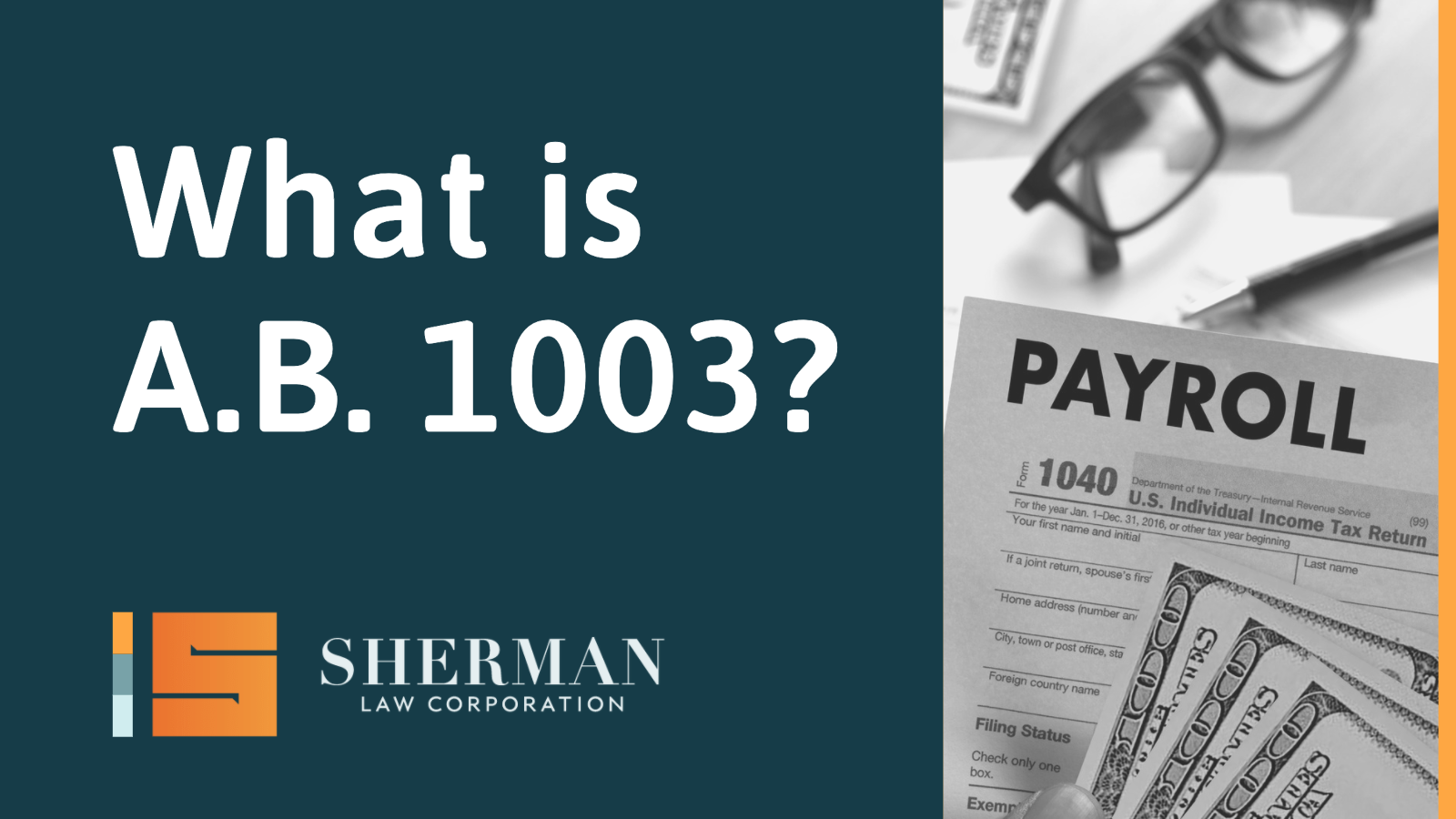
In September 2021, California Governor Gavin Newsom signed Assembly Bill 1003 into law. This law establishes that an employer’s intentional theft of wages or tips is punishable as grand theft. Under previous legislation, intentional theft by an employer was classified as a misdemeanor.
A.B. 1003 applies to theft in an amount greater than $950 for one employee, or $2,350 for two or more employees, and in any 12 consecutive months. Prosecution may vary.
Read on to learn more from the team at Sherman Law Corporation about how this law came about and what it means for your business.
How will companies be penalized under A.B. 1003?
Since A.B. 1003 increases the penalties associated with an employer’s intentional theft and creates California Penal Code Section 487(m), prosecutors can now choose whether to charge an employer with a misdemeanor or a felony.
A misdemeanor can result in county jail imprisonment for up to 1 year. A felony can result in confinement in a county jail for 16 months through 2 or 3 years. Employers can also face a fine. They may even face a fine along with imprisonment.
It is important to note that this law affects all employers, regardless of size. When an employer commits “theft,” it is usually classified as not paying for all hours worked, not providing the appropriate overtime compensation, holding onto employee tips, and paying less than minimum wage.
Currently, specifics concerning how “intentional wage theft” will be defined under A.B. 1003 are unclear, which is why companies should prepare for a variety of situations.
What should companies do before A.B. 1003 goes into effect?
A.B. 1003 will go into effect on January 1st, 2022. Before then, there are steps that employers can and should take to ensure they comply with all applicable laws and regulations. These steps will help to protect their interest moving forward, and they include:
- Analyzing existing compensation policies and practices in detail, making updates as needed to ensure compliance with all new and existing laws and regulations.
- Evaluating and adjusting the compensation policies of any independent contractors, if applicable, since contractors tend to be a company “blind-spot.”
- Taking the time to train employees in-depth on all applicable laws, guidelines, and policies so that those responsible for time and compensation management (payroll managers, supervisors, HR personnel, and operating managers) perform the responsibilities associated with their roles precisely as they should.
- Remembering, with A.B. 1003, there is the potential for an honest mistake or employee error to be classified as theft. This is why employers should be proactive by addressing this legislation internally before January.
Contact the Sherman Law Corporation to make sure your business is prepared for anything
For more information on complying with A.B. 1003, contact Lisa Sherman at (323) 488-2087 or Lisa@sherm-law.com.




